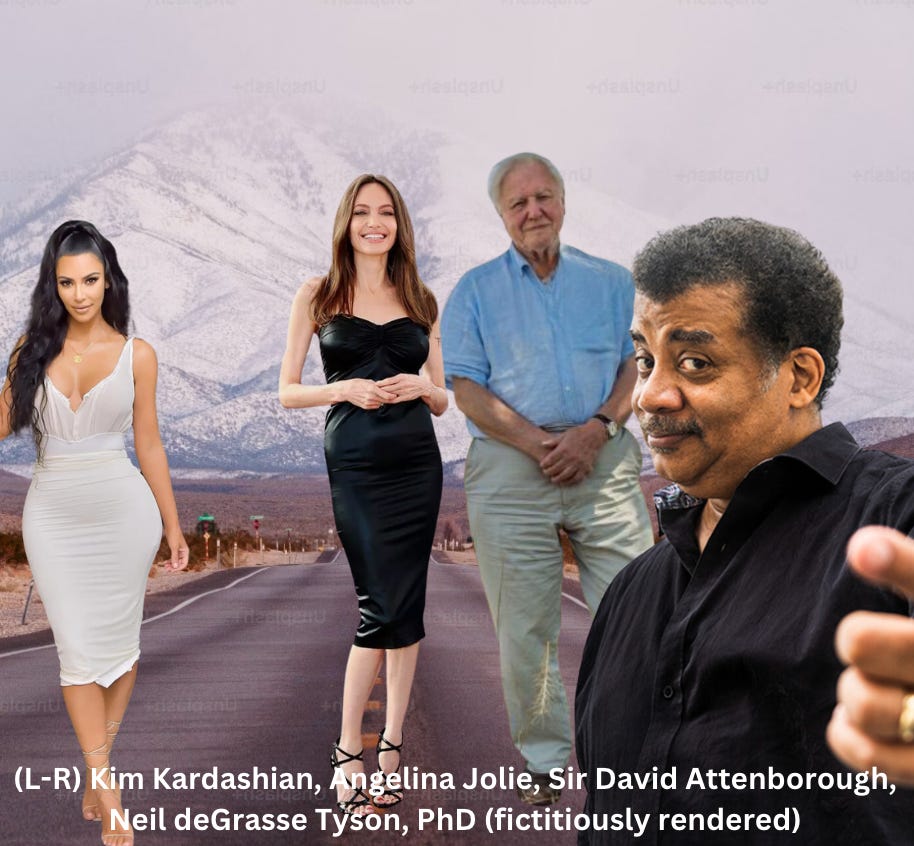'No one cares about credentials in Hollywood'
You Don't Need Fancy Credentials to be a TV Subject-Matter Expert
JCS Strategies | Dr. Jordan Schaul | Bicoastal Publicist
My late friend John Ferriter was an Executive Vice President of the unscripted television division at the William Morris Agency before it merged with Endeavor Talent Agency. He died too young, but not before launching the careers of many people you have heard of. One of the things I learned most from John is that credentials do not matter in the news and entertainment business the way they matter in other industries.
Packaging shows like Keepin’ Up with the Kardashians, Project Runway, and The Biggest Loser, Ferriter helped introduce audiences to reality television and, in some cases, talent who were among the first celebrities to be considered famous for being famous (i.e., famous by association) and famous for nothing. He disrupted legacy media by helping create new entertainment programming without scripts and established TV stars. In doing so, Ferriter was part of a cohort of entertainment executives who changed celebrity culture and what it means to be a celebrity.
By the end of his career, Ferriter had helped make obscure and unknown people famous and renowned, often for no particular skill, talent, or achievement other than losing weight or promoting phenotypes. He also helped celebrities who were already famous for something become more famous (e.g., Chelsea Handler (Chelsea Lately), Ryan Seacrest (On Air With Ryan Seacrest), and Donny and Marie Osmond (The Donny & Marie Show) by helping to package their respective shows.
As reality TV began to dominate prime-time programming, Ferriter capitalized on this new avenue to fame, working with talent as an agent and later as a producer. Because of his keen understanding of scripted television media and news media audiences he was able to break into new genre with significantly lower budgets and an untapped pool of talent. Here’s an interview I conducted with him for HuffPost, exploring the changing profession of news journalism. At the time of the interview, he was representing Piers Morgan, the host of CNN’s Piers Morgan Live.
Scouting for John, I remember him saying, “No one cares about credentials in Hollywood.” Coming out of the academic world, I had this hangup about the institutionalized culture of higher education; He quickly rid me of it.
I had been indoctrinated by scholars, but he believed I had an eye for talent and media presence. Later, when I expressed concern about my qualifications for writing a treatment for a television show concept, he smirked. He had read treatments from a great many others with far less credentials. Again, I had this impression that every industry operated like academia. They don’t.
I started to think less like Sir David Frederick Attenborough, who holds a graduate degree from the London School of Economics, and more like a Kardashian, with their paucity of credentials. Don’t get me wrong, David Attenborough is an icon in my former field, but his style may not appeal to younger and future generations who seek lots of stimulation and immediate gratification with regard to television media. Perhaps, a science communicator like Neil deGrasse Tyson is more poised to educate and entertain future audiences. Tyson is an example of a highly credentialed and accomplished astrophysicist, but it is his ability to engage general audiences that makes him such a sought after as a media personality.
In a previous post, I quoted Leo Braudy, author of The Frenzy of the Renown: Fame and its History, who said fame has become more about “being than doing.” By being, he meant association-based fame (e.g., Kim Kardashian and Paris Hilton), and by doing, he meant achievement-based fame. A happy medium exists and those who embody it like Tyson may survive for many TV seasons. In summary, TV producers are not interested in where talent went to school, but in how talent engage audiences whether they are subject-matter expert or actors.



